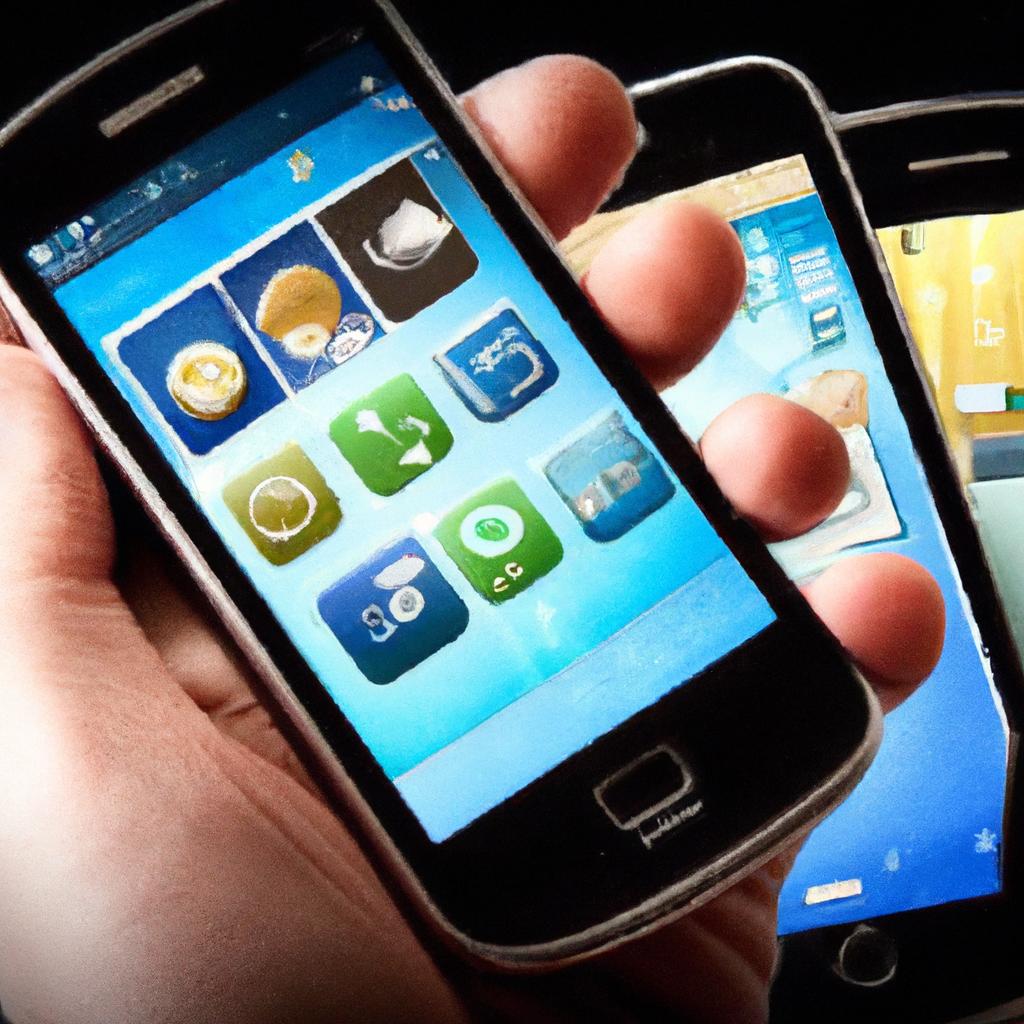In a world where smartphones have become an integral part of our daily lives, the debate between iOS and Android users continues to thrive. Each ecosystem has its own set of advantages and disadvantages, catering to different preferences and needs. Whether you’re a loyal Apple enthusiast or a die-hard Android user, it’s important to understand the key differences between the two ecosystems to determine which one best suits your lifestyle. Join us as we delve into the world of iOS and Android, exploring their unique features and functionalities to help you make an informed decision on which ecosystem is the perfect fit for you.
Table of Contents
- The User Interface: Exploring the Visual Differences
- App Stores: Comparing Quantity and Quality of Apps Available
- Customization Options: Tailoring Your Device to Your Preferences
- Security Features: Evaluating the Safety Measures of iOS and Android
- Q&A
- Closing Remarks
The User Interface: Exploring the Visual Differences
When it comes to the user interface, iOS and Android have distinct visual differences that cater to different preferences. iOS is known for its clean, sleek design with rounded corners and vibrant colors. The interface is user-friendly and intuitive, making it easy for even the most technologically challenged individuals to navigate. On the other hand, Android offers a more customizable experience with its ability to personalize widgets, icons, and themes. Android users have the flexibility to make their devices truly unique to their liking.
One notable difference between iOS and Android is the placement of app icons. In iOS, app icons are neatly organized on the home screen, allowing for easy access to frequently used apps. Android, on the other hand, allows users to place app icons wherever they please on the home screen, giving them more control over their device’s layout. Additionally, iOS features a centralized control center for quick access to settings, while Android has a notification shade that provides easy access to notifications and quick settings toggles.
App Stores: Comparing Quantity and Quality of Apps Available
When it comes to choosing between iOS and Android, one of the key factors to consider is the quantity and quality of apps available in their respective app stores. Both platforms boast millions of apps to choose from, but the quality and selection can vary significantly between the two.
**iOS:**
- Curated selection of high-quality apps.
- Strong focus on design and user experience.
- Apps are generally released on iOS first.
**Android:**
- Wide range of apps catering to diverse user preferences.
- More customization options for users and developers.
- Some app exclusives not available on iOS.
Customization Options: Tailoring Your Device to Your Preferences
When it comes to customizing your mobile device, both iOS and Android offer a plethora of options to tailor your device to your preferences. Each ecosystem has its own strengths and weaknesses, so it’s important to consider your individual needs before making a decision.
One major difference between iOS and Android customization options is the level of control you have over your device. Android allows for greater flexibility in customization, with the ability to change themes, install custom launchers, and even root your device for advanced customization. On the other hand, iOS offers a more streamlined and user-friendly experience, with a focus on simplicity and ease of use.
<table class="wp-block-table">
<thead>
<tr>
<th>Customization Options</th>
<th>iOS</th>
<th>Android</th>
</tr>
</thead>
<tbody>
<tr>
<td>Themes</td>
<td>Limited</td>
<td>Extensive</td>
</tr>
<tr>
<td>Custom Launchers</td>
<td>Not Available</td>
<td>Available</td>
</tr>
<tr>
<td>Rooting</td>
<td>Not Possible</td>
<td>Possible</td>
</tr>
</tbody>
</table>
Security Features: Evaluating the Safety Measures of iOS and Android
When it comes to evaluating the safety measures of iOS and Android, it’s essential to consider the security features that each operating system provides. iOS is known for its strict app vetting process, which helps prevent malicious software from infiltrating the system. Additionally, iOS devices benefit from regular security updates that are pushed out to all devices simultaneously, ensuring that users are protected from the latest threats.
On the other hand, Android devices offer users more flexibility when it comes to customization and app installation. However, this freedom also opens up potential security risks, as Android’s open-source nature makes it more susceptible to malware. To combat this, Android has implemented features like Google Play Protect, which scans apps for potential risks before they are downloaded onto a device. Ultimately, deciding between iOS and Android will depend on your personal preferences and priorities when it comes to security and usability.
Q&A
Q: What are the main differences between iOS and Android?
A: iOS is known for its user-friendly interface and smooth performance, while Android offers more customization options and flexibility.
Q: Which ecosystem is better for privacy and security?
A: iOS is often considered more secure due to its closed system and regular software updates, but Android has made significant improvements in recent years to enhance security features.
Q: Which platform offers a better selection of apps?
A: Both iOS and Android have vast app stores with millions of options, but iOS typically gets exclusive apps first and has a reputation for higher quality apps.
Q: Can you easily switch from iOS to Android, or vice versa?
A: It is possible to switch between the two ecosystems, but there may be some challenges with transferring data and getting used to a new operating system.
Q: Which ecosystem is better for integrating with other devices?
A: iOS is often praised for its seamless integration with other Apple products, while Android is known for its compatibility with a wide range of devices and services.
Q: What are the pricing differences between iOS and Android devices?
A: Generally, iOS devices tend to be more expensive upfront, while Android devices offer a wider range of prices to fit different budgets.
Q: In terms of updates and support, which ecosystem is more reliable?
A: iOS devices typically receive software updates for a longer period of time compared to most Android devices, which can vary depending on the manufacturer.
Q: Overall, which ecosystem would be a better choice for someone looking for simplicity?
A: If simplicity is your main priority, iOS may be the better choice with its clean interface and straightforward user experience.
Closing Remarks
In conclusion, both iOS and Android offer unique features and experiences that cater to different preferences and priorities. Whether you value customization and versatility or simplicity and streamlined design, there is an ecosystem out there that will suit you best. Ultimately, the choice between iOS and Android comes down to personal preference and how well each platform aligns with your lifestyle and needs. So, weigh the pros and cons, test out both systems, and make an informed decision that will enhance your digital experience. After all, in the world of technology, the possibilities are endless and the choice is yours.





